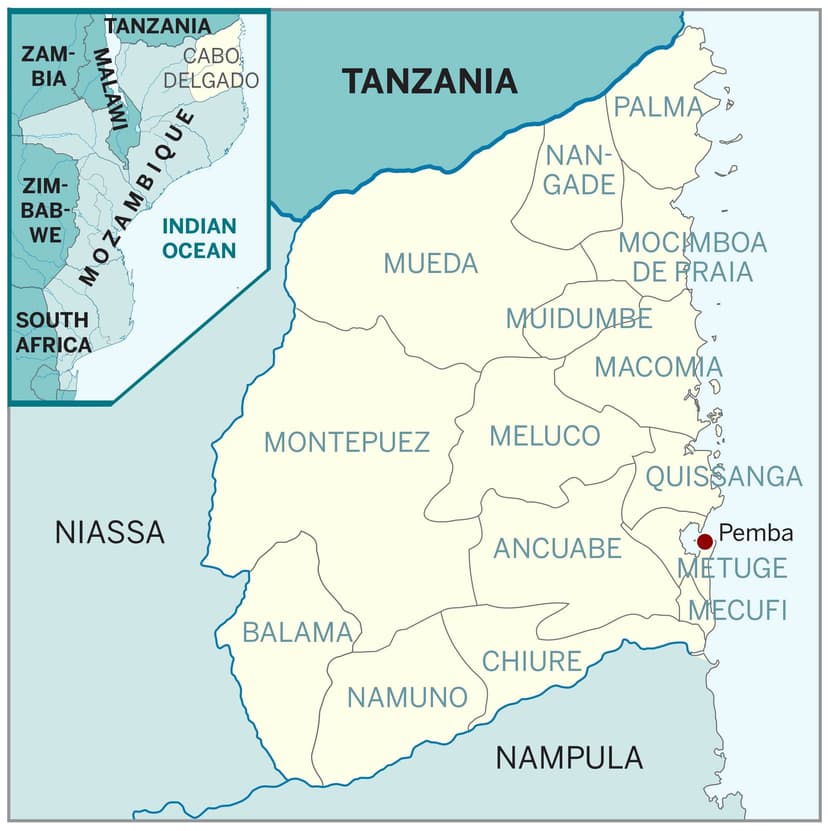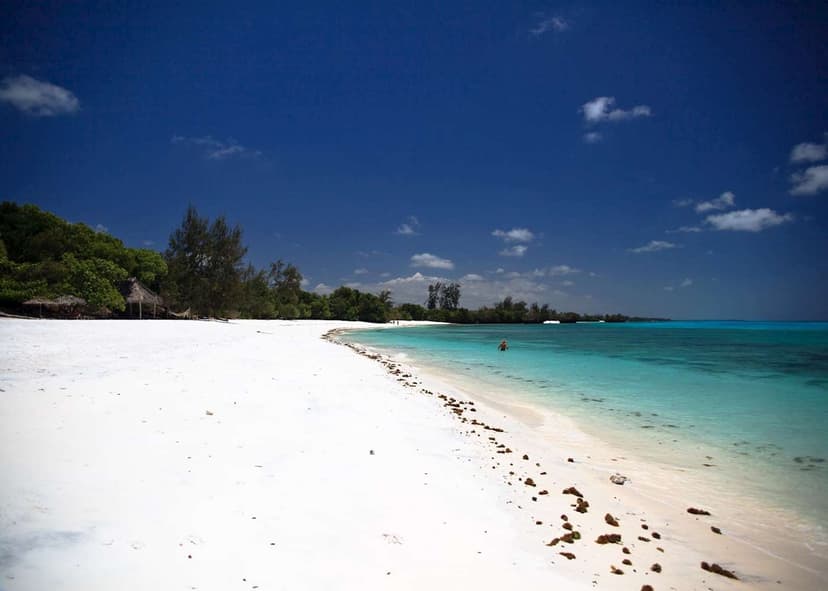

Christians in northern Mozambique face violent persecution at the hands of Islamist militants. At the same time, just a few kilometers away, tourists enjoy luxury holidays on pristine beaches, unaware of the suffering unfolding outside their resorts.
Heike Claudia Petzer
Apr 21, 2025 - 2:21 PM
Share


While tourists sip cocktails on white sand beaches under the Mozambican sun, just a few kilometers north, Christian families are fleeing for their lives or, far worse, being hunted down, beheaded, or forced to convert to Islam whilst staring down the barrel of a gun. Welcome to Cabo Delgado: Africa’s most underreported slaughtering field.
Since 2017, northern Mozambique has descended into a nightmare of Islamist violence, where being a Christian is increasingly a death sentence. What began as a local insurgency by a group calling itself Ansar al-Sunna has evolved into a full-fledged ISIS affiliate, Islamic State Mozambique (IS-M), waging a brutal religious war.
Entire villages have been destroyed, with many communities displaced. Churches have been torched. Believers have been beheaded in public squares. Destruction seems like a too timid word to use when describing the acts of these terrorists. The militants use tactics identical to ISIS in Iraq and Syria:
According to Open Doors, Mozambique has now entered the top 40 worst countries for Christian persecution. Entire regions have been emptied of their Christian population. Over 1,600 Christian properties were destroyed by the Islamic State Mozambique, which claimed to have also destroyed 18 churches in three weeks. The death toll since 2017 exceeds 3,000 civilians, and over 1 million people have been displaced.
In the last 12 months, IS-M militants carried out a series of coordinated attacks in Mucojo, Meluco, Macomia, and Quissanga.
IS-M now carries out dozens of attacks per month, often with military precision, which indicates that the militants have received advanced military training. The violence has destabilized the entire north of Mozambique, and the government, despite help from Rwanda and regional forces, struggles to keep the militants contained.

Herein lies the gut-wrenching irony: while Christian villagers are executed for their faith, tourists are sipping cocktails at beachfront resorts just an hour or two away.
Pemba, the provincial capital of Cabo Delgado, remains a tourist gateway to the stunning Quirimbas Archipelago. Islands like Ibo, Matemo, and Quilálea boast high-end eco-lodges, scuba diving retreats, and luxury sailing. From these resorts, guests can watch the sun set over the Indian Ocean, unaware and unconcerned that Christian children are being beheaded just a few dozen kilometers inland.
Imagine vacationing in Iraq during the fall of Mosul. That is what’s happening here. Mozambique is the only place in the world where a Christian genocide and beachfront honeymoon packages co-exist.
Why does no one speak out, you might wonder. Part of the answer lies in media blackout and fatigue. Mozambique is a poor, geopolitically quiet country. There are no cameras in the villages, no NGOs with the clout to demand action, no social media hashtags to elevate their suffering. And perhaps, most disturbingly, rural Christians don’t fit the Liberal West’s narrative of the “worthy victim.”

This cannot continue. Churches worldwide must rise in prayer. Mission agencies must tell the stories of persecuted brothers and sisters, and those yet to become victims. Journalists must uncover the truth. And tourists must ask themselves: Can we tan on blood-soaked soil without conscience?
Christian persecution in Mozambique is a slow-motion crucifixion happening now. The blood of the saints cries out from Cabo Delgado.
Share
Heike Claudia Petzer
Content Writer